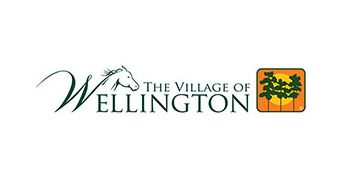Wellington’s Planning, Zoning & Adjustment Board reviewed the controversial equestrian element of the village’s comprehensive plan on Wednesday, April 14, voting 4-0 to adopt the plan with a recommendation for no increase in the number of lanes on any roadway in the Equestrian Preserve Area. In addition, the word “preserve” was added to the subtitle on the pages that discuss equestrian issues.
The village is currently undergoing a chapter-by-chapter rewrite of its state-mandated comprehensive plan. Most of the document has been uncontroversial, with the equestrian section garnering the most discussion, with several high-profile wording disagreements between village staff and Wellington’s Equestrian Preserve Committee.
Planning & Zoning Director Tim Stillings explained that the topic is divided into three goals — the equestrian lifestyle, the multi-modal transportation network and the equestrian transportation circulation plan.
The plan stated that no roads except “possibly” Lake Worth Road and South Shore Blvd. would be considered for expansion to four lanes.
This idea had originally been added to the plan at the beginning of the public input sessions last year. Venue operators have suggested that better transportation into and out of the show areas would make the facilities more attractive when compared to new competition venues in Ocala.
But residents who came out to speak had a different view. Focusing on the community they live and ride in, they were worried about potential pass-through traffic and roadway intersections far too wide to cross with a horse.
Equestrian Carol Coleman worried about expanding Lake Worth Road to four lanes and about land zoned commercial/recreational becoming commercial, thereby losing the area’s equestrian feel. “Four-laning would be an incredible tragedy for the Equestrian Preserve Area,” Coleman said.
Cynthia Gardner, former chair of the Equestrian Preserve Committee, added that any adverse thing that happens to compromise the equestrian industry is bad for Wellington.
“The equestrian industry is really our only industry,” she said. “We are seeing a lot of threat to what we have, so we have to hold onto what we’ve got… Four lanes on these roads would be making it impossible with the traffic for horses to cross these roads.”
Gardner said that she was very concerned about the potential competition offered by Ocala.
“They’ve spent $20 million I believe, approximately, in building a major Olympic-caliber facility up there, where equestrians could go on weekends instead of being here every weekend,” Gardner said.
Haakon Gangnes, a current member of the Equestrian Preserve Committee, complained that the last board meeting had been canceled and that he had not been able to see the changes his committee had approved and that what was before the board did not reflect his changes.
Stillings explained that the committee is an advisory board that makes recommendations on specific agenda items, and it is common for the staff to cancel meetings with nothing on them except approval of the previous minutes, as was the case last month.
“We always come up with several topics to talk about,” countered Gangnes, who noted the board’s ongoing discussions on manure and water quality.
Planning, Zoning & Adjustment Board members were very concerned about any efforts to widen roadways in the Equestrian Preserve Area.
“I have misgivings about [widening] any roads,” Board Member Adam Rabin said.
Vice Chair Jeffrey Robbert agreed. “I am a roadway engineer, but I don’t really like them. I can’t get behind adding more roads [or lanes],” he said. “I guess I would want to see more of the justification for [widening] upfront.”
An extensive discussion occurred with the board considering many options, inside and outside the box. Tunnels, bridges, turning lanes and more were mentioned briefly, but ultimately it was obvious from questions by Board Member Ron Herman and others that there was a general consensus not to recommend any road widenings or expansions.
The board also worried that lacking the word “preserve” in the subtitles on pages of the section would diminish the public’s perception of the residents’ attitude toward the area. Several audience members were in agreement that it was good for the community to have the word in the title.
The board, attorney and staff agreed that it made no legal difference whether to have it or not, so with visions of previous conflicts over a specific word or two, the name was changed to recommend to the Wellington Village Council, which has final say, that this section be titled the “Equestrian Preserve Element.”
With only four members present, the minimum allowed to make recommendations on behalf of the board, Chair Elizabeth Mariaca, Robbert, Herman and Rabin voted unanimously to recommend the element with its two changes to the council.
In other business, the board gave a conditional use approval to Chicken Salad Chick, a new fast casual restaurant to be located in front of the original Wellington Mall at the site of the former Boston Market restaurant. The approval allows Chicken Salad Chick to add a drive-through lane, with a passing lane, some parking lot reconfigurations and additional landscaping to the existing restaurant site. No members of the public came forward to offer comments, and the measure passed unanimously.








